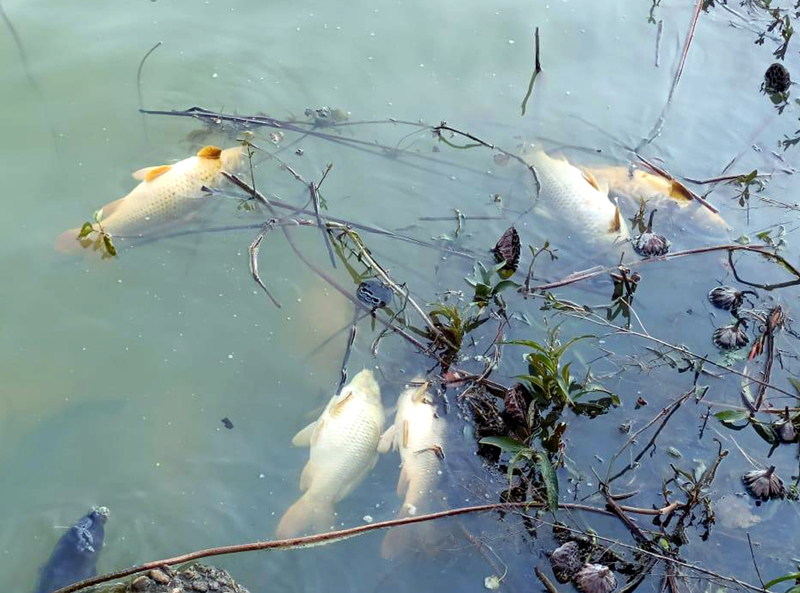3,000 fishes die in Samba’s Mansar lake, Ops to remove dead fishes underway

Samba, Feb 10 (WD):
The serene waters of Mansar Lake in Jammu and Kashmir’s Samba district have transformed into a scene of sorrow as nearly 3,000 fish have perished in recent days, causing distress among local residents and authorities, officials reported on Saturday.
The Wildlife department attributed the cause of the large number of fish deaths to the consumption of hailstones during recent rains. “They died after consuming hailstones mistaking them for flour balls, a food regularly offered by people due to religious beliefs,” said Dheeraj Rampal, a Block officer from the Wildlife department in Mansar.
The area experienced a rainstorm on February 1st, contributing to the unfortunate incident, officials mentioned, estimating the number of dead fish to be between 2,500 to 3,000. In previous years, fish deaths have occurred due to cold weather or oxygen deficiency.
Mansar Lake, the largest freshwater lake in the Shivalik mountain range of Jammu and Kashmir and protected under the Ramsar Convention, has shocked locals and tourists alike with the sight of dead carp fish floating on the surface and along the lake banks for the past week.
“We woke up to a distressing sight of numerous dead fish in the lake on February 2nd. It’s deeply concerning,” remarked Dina Nath, a local resident.
Located about 45 kilometers from Jammu and a popular tourist destination, Mansar Lake attracts nearly a million visitors annually. Concerned locals have been observing a continuous die-off of fish over the past few days, with efforts underway to remove and bury the deceased fish to prevent pollution and potential epidemics.
Efforts by the Wildlife Department personnel include diligently removing and burying the dead fish away from the lake. Pankaj Sharma, a local shop owner, emphasized the cultural significance of the lake, mentioning its connection to Sheshnag and references in the Mahabharat.
“Every day, we are removing 4 to 5 trollies of dead fish from the lake. The task has been ongoing for the past week, and we are burying them away from the lake to prevent further pollution,” explained Room Raj, a laborer from the Wildlife department.
Officials also highlighted other potential factors contributing to the fish deaths, such as intense cold and natural elements leading to decreased oxygen levels in the water.





